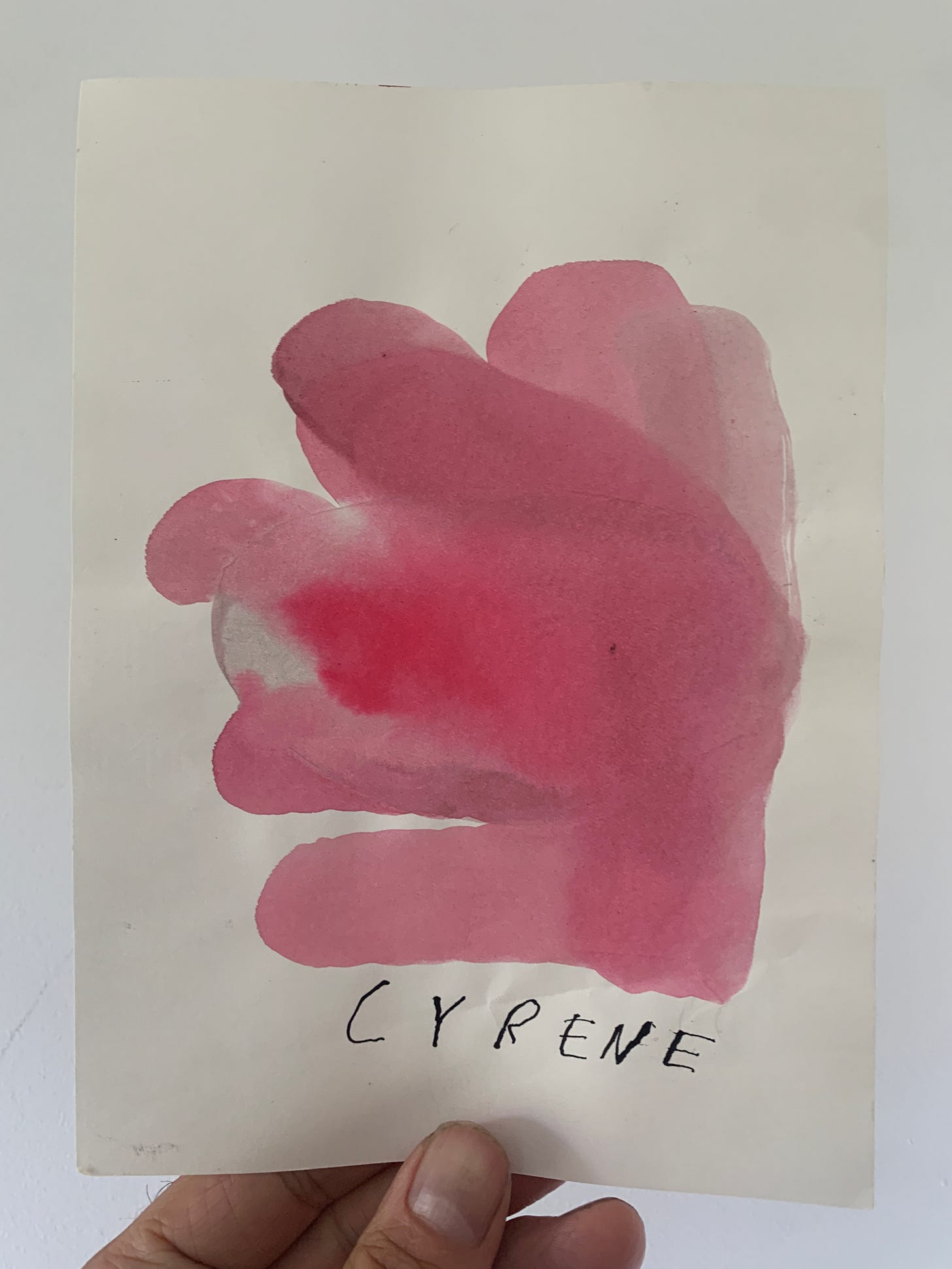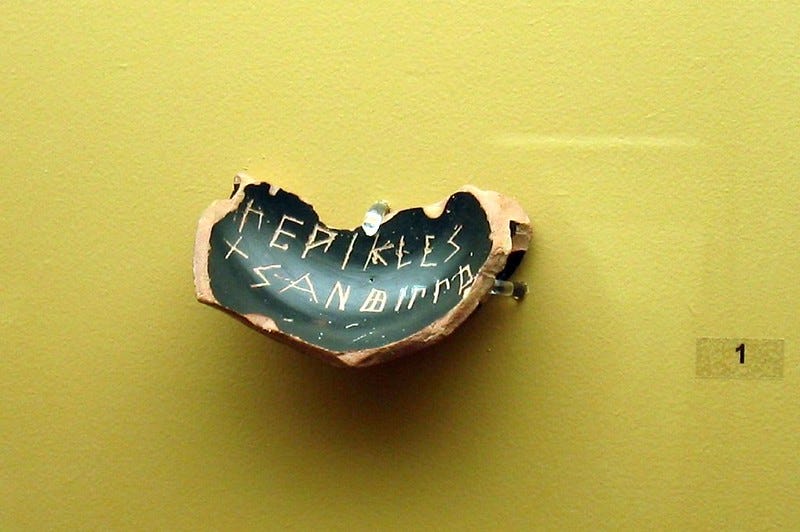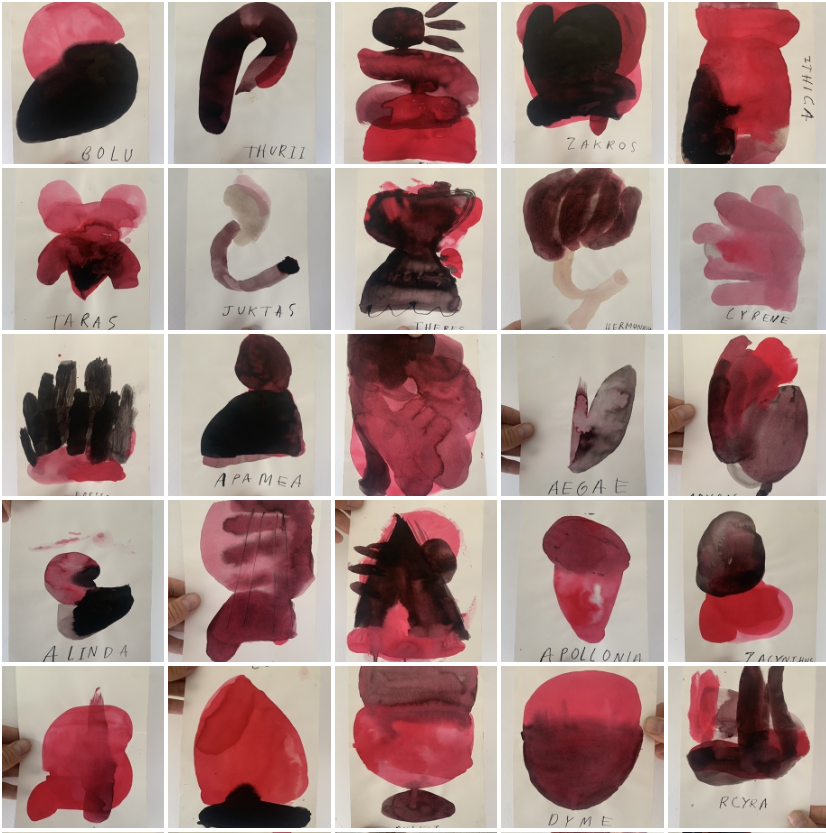Sparta
Lost city states

Hello Dear reader
Years ago I got the colour Amaranth in my head. I like that its an ancient grain and that it blooms big like it’s giving you ‘the finger’ in rich velvety magenta tones. I tried getting that colour over the years from all sorts of sources, including a version of the whole plant called Hopi dye amaranth, pokeberries, beet, cochineal. I really liked the look of bright pink pokeberries with some carbon black added to it to purple it and I had a few bottles of Amaranth inspired ink waiting for the right project. Before that I had a bit of a preoccupation with early democracy brought on by some research I did for my campaign called, Toronto Needs a Creative Director. I’d been wondering if maybe cities make a better political units than the traditional borders of provinces, states and countries.
The city states and Athens in particular was known for pioneering a tactile form of embodied democracy. The idea was that a big jug or amphora blackened on the outside represented a whole city and when it was time to vote, the amphora was smashed into tiny pieces each one given to a single citizen of the city who could then scratch their choice for leader into the shard of pottery. Because each piece was unique, it was harder to cast fake votes. Because the pottery underneath the black was of an iron-rich red clay, it was easy to scratch out letterforms by subtraction. And, they even had a kind of ingenious check for politician that got too much power, wealth, or influence, called ostracism. Again, citizens were given a shard of pottery that could be cast not to vote in but to vote out someone. If there were enough votes to get rid of a politician they could be banned from the city for 10 years, which should be enough time for the community to rebuild. Ostracism might be worth bringing back but it brings up another set of questions. Digging deeper into the political life of Athens reveals the lie of collective government. Athens like pretty much all of the ancient Greek city states relied heavily on slaves, mostly excluded women from political life, and '“invented” democracy and philosophizing for such a small group of landowning elites that Athens might be more of a warning than a model for living together. A warning to anyone trying to set up a fair form of government for even a small community to consider who’s getting excluded in the process. Who gets to be called a citizen?
The idea of an autonomous city state still fascinates me.
The modern world has Monaco, Vatican City, and Singapore, and is Washington DC kind of one? but I wonder what it would be like if, say, New York or Toronto, or London, just became its own country with its own budget and laws and way of doing things. I looked up the names of ancient Greek city states on wikipedia and found this chart. I particularly liked the column noting that many of these cities are now forgotten, submerged in water, abandoned, or have new names and now belong to some other country.
I was compelled into making a sort of series of city states. States of place, of mind and of matter. I took a pad of cream coloured Italian correspondence paper and painted abstract blobs made with the amaranth-inspired colours and labelled them with the names of ancient city states no longer with us. After using up all the ink and writing paper I scanned in the results and put them together into one of those books that you make online in limited editions. For some reason my favourite page was Sparta. The word, the colours, the blob felt right together. I put it on a t-shirt for my partner and then later helped to turn it into a print for Horses Atelier. It was just last week that I found the manilla envelope with that original stack of images and words. Here are a few of them below:
As usual I hope you might consider joining the Colour Lab which has more material more conversation and helps to support my experiments and growing of the natural colour network around the world.






